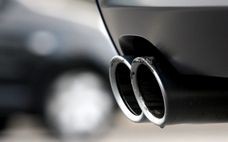-
November 2025 M T W T F S S « Jan 1 2 3 4 5 6 7 8 9 10 11 12 13 14 15 16 17 18 19 20 21 22 23 24 25 26 27 28 29 30 -
NMeda: Motor sports is really for every one. Glad to know »
-
online spiele: Hi there, You have done a fantastic job. I will d »
-
Lily: I do not comment, but after looking at through a f »
-
jd: Reading this I was reminded of the book " »
-
John E.: Thanks. Perhaps you should consider "Guest Posting »
-
DARPA awards Phase 2 SBIR contract for HEV motorcycle prototype
January 20, 2015 By Neville -
Report: Hyundai to cut price of FCV in Korea to compete with Toyota
January 20, 2015 By Neville -
Nissan LEAF is best-selling EV in Europe for fourth year in a row
January 20, 2015 By Neville -
Ford of Europe designer Stefan Lamm joins VW’s Seat brand
January 20, 2015 By Sean -
Ford’s German production to raise as demand rebounds
January 20, 2015 By Sean
-
EU reaches deal on 2020 auto emissions law

The European Union agreed on a compromise deal to enforce stricter rules on carbon dioxide emissions for all new EU automobiles from 2020.
The outline agreement on implementing a target of 95 grams of carbon dioxide per kilometer (equivalent to gasoline use of 4l/100km; 59 U.S. mpg; 71 UK mpg) still needs the official endorsement of EU member states.
German efforts to ensure that its luxury car makers, such as BMW and Daimler, can continue to produce more polluting, less fuel efficient cars complicated the final stages of talks.
But Ireland, holder of the rotating EU presidency, which has brokered the deal, said the compromise struck the right balance between environmental ambition and economic considerations.
“This agreement clearly represents a win-win for climate, consumers, innovation and jobs and provides another important step towards a competitive, low-carbon economy,” Irish Environment Minister Phil Hogan said in a statement after the deal was agreed on Monday.
Under the European Commission targets, each manufacturer is assigned an individual target to take account of the nature of their fleet and their past cuts.
But making less-polluting cars is costly and restricts profit margins, which is why Germany sought ways to delay meeting the stricter rules.
Member states last week rejected a German plan that would have allowed automakers to carry over credits to pollute accrued before the new rules kick in in 2020.
Known as supercredits, these permits are earned if manufacturers produce some very low emissions vehicles, such as electric cars, which German firms are making to meet a separate national target.
German plan
Germany then proposed another plan focused on another technical device, referred to as a multiplier. As agreed on Monday, the multiplier still buys time for automakers because it increases the number of supercredits a manufacturer earns for each low emission vehicle.
Germany and its automakers have repeatedly defended supercredits, saying they encourage innovation. German automakers also complain that tougher emissions limits favor French automakers Renault, PSA/Peugeot-Citroen and Italy’s Fiat that mainly sell smaller cars with low emissions.
The Commission, whose original proposal set a limit on supercredits, says the problem is that too many of them mean producers can carry on making higher emissions models and emissions levels will fail to meet the 2020 95 g/km target.
Electric cars boosted
Environmental campaigners gave a cautious welcome to the deal as a move in the right direction.
Monday’s agreement means that every electric vehicle sold in 2020 counts double, allowing carmakers to make less progress in reducing emissions from conventional cars, according to the campaign group Transport & Environment.
“The effect of the supercredits is to raise the 2020 target from 95g/km to 97.5g/km, ultimately costing the average driver money in extra fuel purchased,” the group said in a statement.
“It could have been even better for drivers, jobs and the EU economy if decision-makers had focused on the significant long-term benefits of more fuel efficient cars instead of the narrow, short-term interests of some carmakers,” said the group’s spokesman Greg Archer in the statement.
Transport & Environment said EU politicians failed to agree on an indicative target for 2025. The European Commission has proposed a 2025 target in the range of 68 to 78g/km, equivalent to under 3 liters of fuel use per 100km. It will propose the exact target by 2015.
Germany’s new car fleet as a whole is at the upper end of the EU emissions range, with 147 g/km in 2011, according to the International Council on Clean Transportation.
The EU fleet average is around 132 g/km, so automakers should meet an existing goal of 130 g/km phased in between 2012 and 2015.
The European automakers lobby group ACEA welcomed the deal as an important milestone in the negotiations for new emissions limits but warned that there still is some way to go before a final agreement is voted in the European Parliament.
“At this stage we would simply like to stress once again that if supercredits are to achieve their aim of fostering innovation and bringing ultra low-emission vehicles to the market, they need to be applied in a more meaningful way, as is the case in other regions of the world,” said Ivan Hodac, ACEA secretary general, in a statement.
“It is in everyone’s interest to get clean vehicles on the roads, and supercredits are the only EU-wide incentive to help put on the market today the technologies of the future,” Hodac said.



